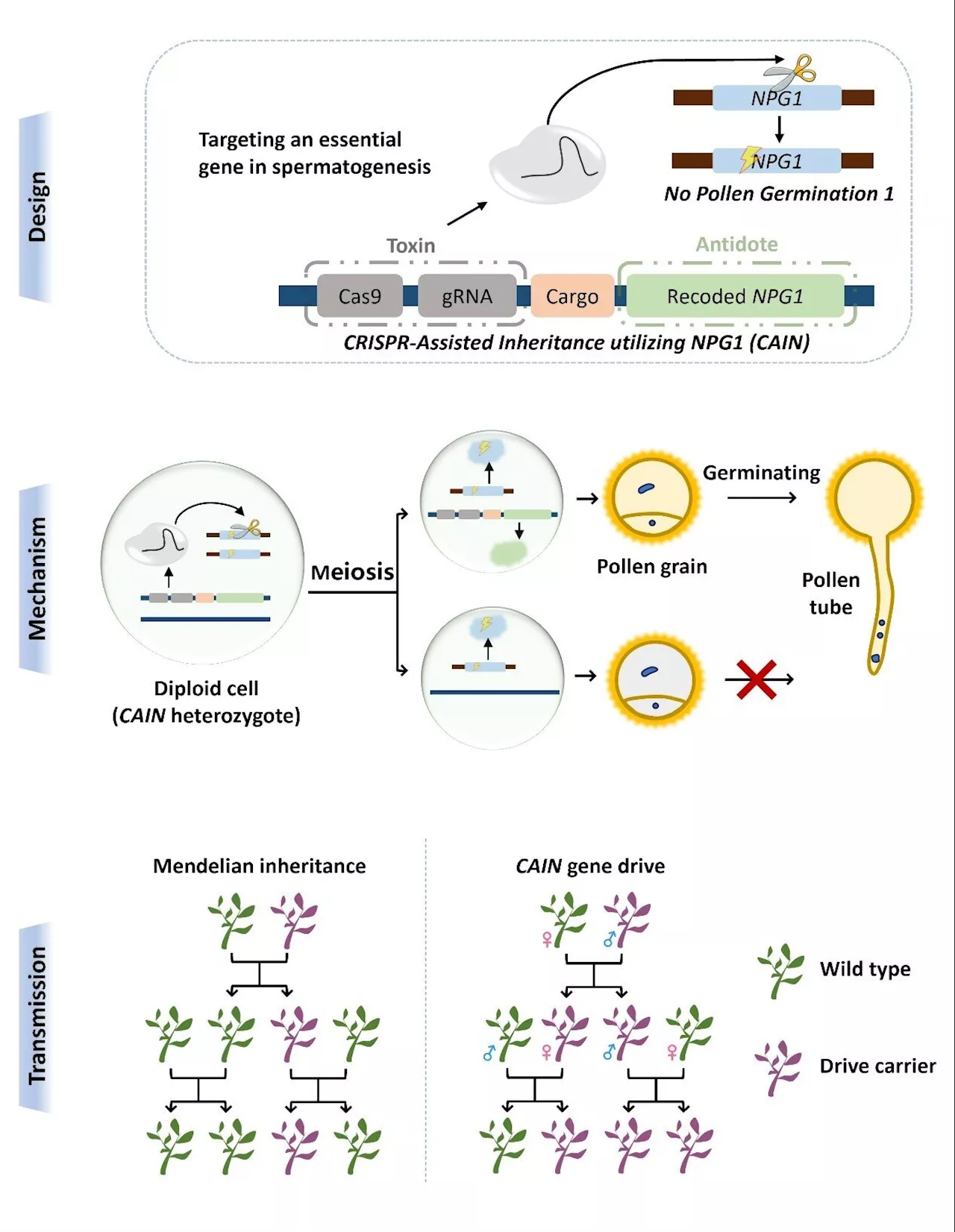Researchers discovered that mycoviruses, or oomycete viruses, can increase the sensitivity of plant pathogenic oomycete to fungicides like metalaxyl. Their findings suggest greater potential for mycoviruses in biocontrol and contributing to sustainable agriculture.
As detrimental as viruses may sound, they can be helping hands for farmers when it comes to dealing with plant pathogens.can increase the latter's sensitivity to specific fungicides. Their findings could lead to innovative approaches for controlling plant diseases, reducing reliance on chemical treatments, and minimizing agricultural loss.Mycoviruses, or fungal viruses, infect fungi as well as fungus-like organisms such as oomycetes.
"Since mycoviruses may significantly impact the ecology of oomycetes, we found it crucial to study their effects at both the phenotypic and gene expression levels," said Tomofumi Mochizuki, an associate professor at the Graduate School of Agriculture of Osaka Metropolitan University and corresponding author of this study., a major soil-borne oomycete responsible for damping-off and root rot in many plant species.
"Our results indicate that mycoviral infections alter the sensitivity of the host oomycete to fungicides," said Aika Higuchi, a master's student and this study's first author. "Our research shows that the effects of viral infection on host oomycete can only be seen under certain conditions," Mochizuki said."Even if it seems that viral infection has no effect at first glance, it is necessary to analyze it from various perspectives."Fungicides used to prolong shelf life of fruits may select for pathogenic yeasts and boost transmission. Those pathogens include Candida auris, a drug-resistant pathogenic yeast found in stored ...
Agriculture And Food Microbes And More Fungus Exotic Species Ecology Global Warming Environmental Issues
United Kingdom Latest News, United Kingdom Headlines
Similar News:You can also read news stories similar to this one that we have collected from other news sources.
 Study suggests mycoviruses enhance fungicide effectiveness against plant pathogensAs detrimental as viruses may sound, they can be helping hands for farmers when it comes to dealing with plant pathogens.
Study suggests mycoviruses enhance fungicide effectiveness against plant pathogensAs detrimental as viruses may sound, they can be helping hands for farmers when it comes to dealing with plant pathogens.
Read more »
 Overriding Mendel's laws: Researchers develop plant gene drive system for enhanced trait inheritanceA collaborative research team has developed a plant gene drive system called CRISPR-Assisted Inheritance utilizing NPG1 (CAIN), which, according to the researchers, uses a toxin-antidote mechanism in the male germline to override Mendelian inheritance in plants.
Overriding Mendel's laws: Researchers develop plant gene drive system for enhanced trait inheritanceA collaborative research team has developed a plant gene drive system called CRISPR-Assisted Inheritance utilizing NPG1 (CAIN), which, according to the researchers, uses a toxin-antidote mechanism in the male germline to override Mendelian inheritance in plants.
Read more »
 Researchers show taller plant communities are more productive and sensitive to climate warmingClimate warming, a result of increasing greenhouse gas emissions, is causing significant shifts in the composition of plant species with different traits worldwide. These changes are particularly pronounced in colder or higher elevation regions, where their effects are magnified.
Researchers show taller plant communities are more productive and sensitive to climate warmingClimate warming, a result of increasing greenhouse gas emissions, is causing significant shifts in the composition of plant species with different traits worldwide. These changes are particularly pronounced in colder or higher elevation regions, where their effects are magnified.
Read more »
 PMAT: Researchers develop a new tool for efficient assembly of plant mitochondrial genomesPlant mitochondrial genomes (mitogenomes) are crucial for understanding nucleocytoplasmic interactions, plant evolution, and breeding of cytoplasmic male sterile lines. However, their complete assembly is challenging due to frequent recombination events and horizontal gene transfers.
PMAT: Researchers develop a new tool for efficient assembly of plant mitochondrial genomesPlant mitochondrial genomes (mitogenomes) are crucial for understanding nucleocytoplasmic interactions, plant evolution, and breeding of cytoplasmic male sterile lines. However, their complete assembly is challenging due to frequent recombination events and horizontal gene transfers.
Read more »
 Researchers cataloging plant species are trying to decipher what makes some groups so successfulIrish researchers involved in cataloging the world's plant species are hunting for answers as to what makes some groups so successful.
Researchers cataloging plant species are trying to decipher what makes some groups so successfulIrish researchers involved in cataloging the world's plant species are hunting for answers as to what makes some groups so successful.
Read more »
 Researchers expose new symbiosis origin theories, identify experimental systems for plant lifeResearch work on symbiosis -- a mutually beneficial relationship between living organisms -- is pushing back against the newer theory of a 'single-origin' of root nodule symbiosis (RNS) -- that all symbiosis between plant root nodules and nitrogen-fixing bacteria stems from one point--instead suggesting a 'multiple-origin' theory of sybiosis which...
Researchers expose new symbiosis origin theories, identify experimental systems for plant lifeResearch work on symbiosis -- a mutually beneficial relationship between living organisms -- is pushing back against the newer theory of a 'single-origin' of root nodule symbiosis (RNS) -- that all symbiosis between plant root nodules and nitrogen-fixing bacteria stems from one point--instead suggesting a 'multiple-origin' theory of sybiosis which...
Read more »
